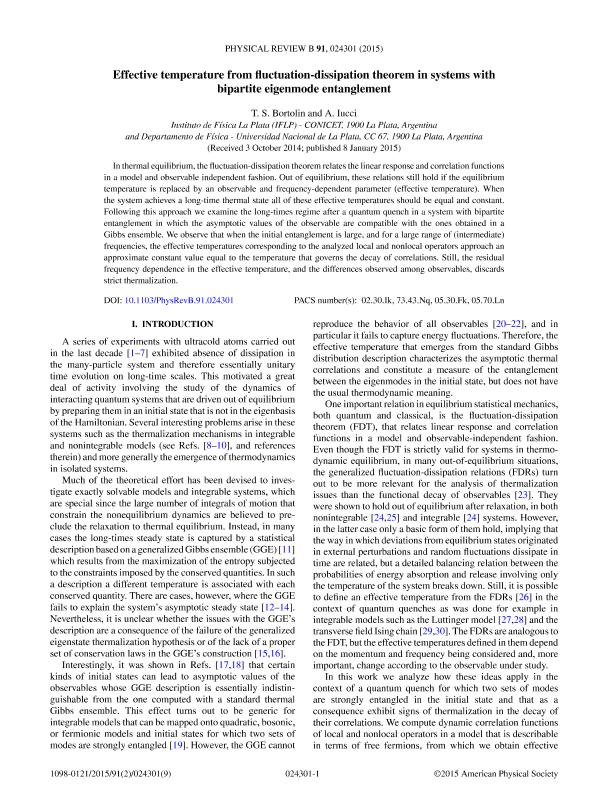Artículo
Effective temperature from fluctuation-dissipation theorem in systems with bipartite eigenmode entanglement
Fecha de publicación:
01/2015
Editorial:
American Physical Society
Revista:
Physical Review B: Condensed Matter and Materials Physics
ISSN:
1050-2947
e-ISSN:
1098-0121
Idioma:
Inglés
Tipo de recurso:
Artículo publicado
Clasificación temática:
Resumen
In thermal equilibrium, the fluctuation-dissipation theorem relates the linear response and correlation functions in a model and observable independent fashion. Out of equilibrium, these relations still hold if the equilibrium temperature is replaced by an observable and frequency-dependent parameter (effective temperature). When the system achieves a long-time thermal state all of these effective temperatures should be equal and constant. Following this approach we examine the long-times regime after a quantum quench in a system with bipartite entanglement in which the asymptotic values of the observable are compatible with the ones obtained in a Gibbs ensemble. We observe that when the initial entanglement is large, and for a large range of (intermediate) frequencies, the effective temperatures corresponding to the analyzed local and nonlocal operators approach an approximate constant value equal to the temperature that governs the decay of correlations. Still, the residual frequency dependence in the effective temperature, and the differences observed among observables, discards strict thermalization.
Archivos asociados
Licencia
Identificadores
Colecciones
Articulos(IFLP)
Articulos de INST.DE FISICA LA PLATA
Articulos de INST.DE FISICA LA PLATA
Citación
Bortolin, Tomás Sebastián; Iucci, Carlos Aníbal; Effective temperature from fluctuation-dissipation theorem in systems with bipartite eigenmode entanglement; American Physical Society; Physical Review B: Condensed Matter and Materials Physics; 91; 2; 1-2015; 1-9
Compartir
Altmétricas




